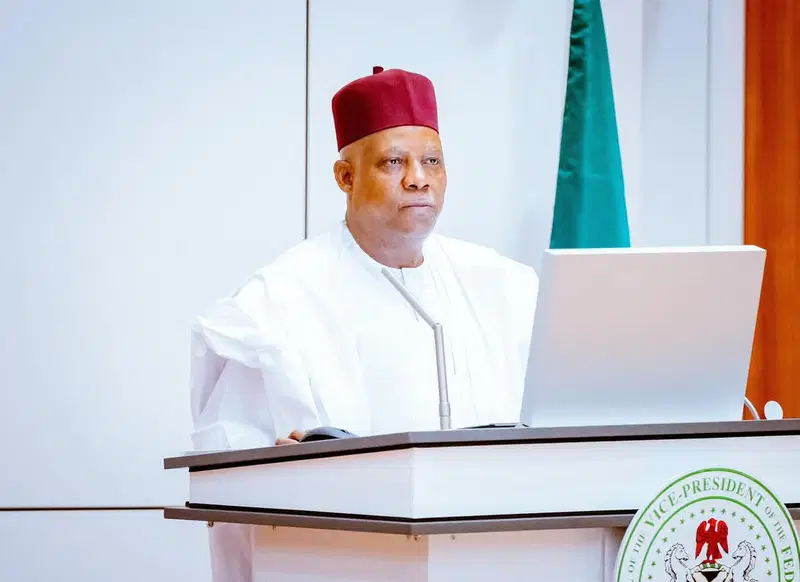Breaking News
Nigeria’s Wealth Is In Its People, Not Oil — VP Shettima
Vice President Kashim Shettima says Nigeria’s true wealth lies in its human capital, not oil, urging support for local production at the Made in Naija Trade Exhibition. He highlights reforms to boost innovation, strengthen industries, and promote Nigerian-made goods for global competitiveness.

Vice President Kashim Shettima has reiterated that Nigeria’s greatest asset is not its oil reserves but the creativity, innovation, and resilience of its people. He restated the Federal Government’s commitment to expanding local production and strengthening industries built on Nigerian talent.
Speaking at the Made in Naija Trade Exhibition organised by the House Committee on Commerce, Shettima—represented by his Special Adviser on Special Duties, Dr. Aliyu Modibbo Umar—said Nigeria’s global reputation will ultimately be defined by what the nation produces and exports.
“There is nothing that advertises the pride of a nation as much as the craft and creativity of its people,” he said. “Our future depends on the ingenuity of our citizens.”
He described the exhibition as a clear signal that both government and private sector stakeholders are prepared to elevate Nigerian-made products to global standards. While acknowledging Nigeria’s vast natural resources, Shettima stressed that true wealth lies in what citizens create from them.
“Our fortune rests on our most valuable asset—our human capital,” he stated.
The Vice President highlighted Nigeria’s proven strengths in agro-processing, architecture, textiles, technology, manufacturing, and the creative sector. However, he emphasized that production must be matched with patronage.
“We must patronise what we produce. Each time we buy Nigerian, we invest in an entrepreneur, an artisan, a factory worker,” he said. Such choices, he noted, support jobs, strengthen the naira, and reduce reliance on foreign supply chains.
Shettima reaffirmed that the Tinubu administration is committed to an innovation-led economy, with reforms focused on infrastructure, access to finance, port efficiency, and certification systems aligned with global benchmarks.
“With the world’s highest quality, we want the answer to be Nigeria,” he added.
Speaker of the House of Representatives, Rt. Hon. Abbas Tajudeen, also pledged the National Assembly’s support for policies that encourage local manufacturing. He said the exhibition aligns with Nigeria’s industrialisation agenda, particularly under the African Continental Free Trade Area (AfCFTA).
Referencing the Nigeria First Policy—which requires government agencies to prioritise locally made goods—Abbas called on manufacturers to uphold global standards, noting that “quality assures credibility, and consumer trust.”
Chairman of the House Committee on Commerce, Hon. Ahmed Munir, said Nigeria is on the threshold of industrial transformation powered by local manufacturing, innovation, and strong legislative support.
He stated that replacing key imports with locally produced alternatives could save up to $20 billion annually and create more than five million jobs by 2030. He added that the non-oil sector could expand GDP by an additional 5% within five years.
Munir also highlighted ongoing work on AfCFTA domestication and regulatory reforms aimed at boosting industrial competitiveness, reaffirming the National Assembly’s resolve to build a strong economic foundation “brick by Nigerian-made brick.”
Opinion Nigeria News










